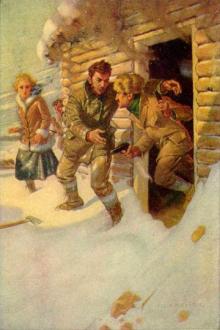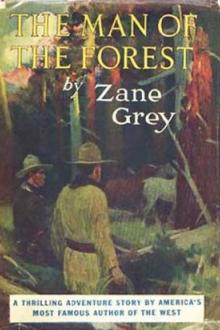Astoria; Or, Anecdotes of an Enterprise Beyond the Rocky Mountains by Irving (top romance novels .TXT) 📗

- Author: Irving
Book online «Astoria; Or, Anecdotes of an Enterprise Beyond the Rocky Mountains by Irving (top romance novels .TXT) 📗». Author Irving
The greatest difficulty was to procure the Sioux interpreter. There was but one man to be met with at St. Louis who was fitted for the purpose, but to secure him would require much management. The individual in question was a half-breed, named Pierre Dorion; and, as he figures hereafter in this narrative, and is, withal, a striking specimen of the hybrid race on the frontier, we shall give a few particulars concerning him. Pierre was the son of Dorion, the French interpreter, who accompanied Messrs. Lewis and Clark in their famous exploring expedition across the Rocky Mountains. Old Dorion was one of those French creoles, descendants of the ancient Canadian stock, who abound on the western frontier, and amalgamate or cohabit with the savages. He had sojourned among various tribes, and perhaps left progeny among them all; but his regular, or habitual wife, was a Sioux squaw. By her he had a hopeful brood of half-breed sons, of whom Pierre was one. The domestic affairs of old Dorion were conducted on the true Indian plan. Father and sons would occasionally get drunk together, and then the cabin was a scene of ruffian brawl and fighting, in the course of which the old Frenchman was apt to get soundly belabored by his mongrel offspring. In a furious scuffle of the kind, one of the sons got the old man upon the ground, and was upon the point of scalping him. “Hold! my son,” cried the old fellow, in imploring accents, “you are too brave, too honorable to scalp your father!” This last appeal touched the French side of the half-breed’s heart, so he suffered the old man to wear his scalp unharmed.
Of this hopeful stock was Pierre Dorion, the man whom it was now the desire of Mr. Hunt to engage as an interpreter. He had been employed in that capacity by the Missouri Fur Company during the preceding year, and conducted their traders in safety through the different tribes of the Sioux. He had proved himself faithful and serviceable while sober; but the love of liquor, in which he had been nurtured and brought up, would occasionally break out, and with it the savage side of his character.
It was his love of liquor which had embroiled him with the Missouri Company. While in their service at Fort Mandan, on the frontier, he had been seized with a whiskey mania; and, as the beverage was only to be procured at the company’s store, it had been charged in his account at the rate of ten dollars a quart. This item had ever remained unsettled, and a matter of furious dispute, the mere mention of which was sufficient to put him in a passion.
The moment it was discovered by Mr. Lisa that Pierre Dorion was in treaty with the new and rival association, he endeavored, by threats as well as promises, to prevent his engaging in their service. His promises might, perhaps, have prevailed; but his threats, which related to the whiskey debt, only served to drive Pierre into the opposite ranks. Still he took advantage of this competition for his services to stand out with Mr. Hunt on the most advantageous terms, and, after a negotiation of nearly two weeks, capitulated to serve in the expedition, as hunter and interpreter, at the rate of three hundred dollars a year, two hundred of which were to be paid in advance.
When Mr. Hunt had got everything ready for leaving St. Louis, new difficulties arose. Five of the American hunters from the encampment at Nodowa, suddenly made their appearance. They alleged that they had been ill treated by the partners at the encampment, and had come off clandestinely, in consequence of a dispute. It was useless at the present moment, and under present circumstances, to attempt any compulsory measures with these deserters. Two of them Mr. Hunt prevailed upon, by mild means, to return with him. The rest refused; nay, what was worse, they spread such reports of the hardships and dangers to be apprehended in the course of the expedition, that they struck a panic into those hunters who had recently engaged at St. Louis, and, when the hour of departure arrived, all but one refused to embark. It was in vain to plead or remonstrate; they shouldered their rifles and turned their backs upon the expedition, and Mr. Hunt was fain to put off from shore with the single hunter and a number of voyageurs whom he had engaged. Even Pierre Dorion, at the last moment, refused to enter the boat until Mr. Hunt consented to take his squaw and two children on board also. But the tissue of perplexities, on account of this worthy individual, did not end here.
Among the various persons who were about to proceed up the Missouri with Mr. Hunt, were two scientific gentlemen; one Mr. John Bradbury, a man of mature age, but great enterprise and personal activity, who had been sent out by Linnaean Society of Liverpool to make a collection of American plants; the other, a Mr. Nuttall, likewise an Englishman, younger in years, who has since made himself known as the author of Travels in Arkansas, and a work on the Genera of American Plants. Mr. Hunt had offered them the protection and facilities of his party, in their scientific research up the Missouri River. As they were not ready to depart at the moment of embarkation, they put their trunks on board of the boat, but remained at St. Louis until the next day, for the arrival of the post, intending to join the expedition at St. Charles, a short distance above the mouth of the Missouri.
The same evening, however, they learned that a writ had been issued against Pierre Dorion for his whiskey debt, by Mr. Lisa, as agent of the Missouri Company, and that it was the intention to entrap the mongrel linguist on his arrival at St. Charles.
Upon hearing this, Mr. Bradbury and Mr. Nuttall set off a little after midnight, by land, got ahead of the boat as it was ascending the Missouri, before its arrival at St. Charles, and gave Pierre Dorion warning of the legal toil prepared to ensnare him.
The knowing Pierre immediately landed and took to the woods, followed by his squaw laden with their papooses, and a large bundle containing their most precious effects, promising to rejoin the party some distance above St. Charles. There seemed little dependence to be placed upon the promises of a loose adventurer of the kind, who was at the very time playing an evasive game with his former employers; who had already received two-thirds of his year’s pay, and his rifle on his shoulder, his family and worldly fortunes at his heels, and the wild woods before him. There was no alternative, however, and it was hoped his pique against his old employers would render him faithful to his new ones.
The party reached St. Charles in the afternoon, but the harpies of the law looked in vain for their expected prey. The boats resumed their course on the following morning, and had not proceeded far when Pierre Dorion made his appearance on the shore. He was gladly taken on board, but he came without his squaw. They had quarreled in the night; Pierre had administered the Indian discipline of the cudgel, whereupon she had taken to the woods, with their children and all their worldly goods. Pierre evidently was deeply grieved and disconcerted at the loss of his wife and his knapsack, whereupon Mr. Hunt despatched one of the Canadian voyageurs in search of the fugitive; and the whole party, after proceeding a few miles further, encamped on an island to wait his return. The Canadian rejoined the party, but without the squaw; and





Comments (0)